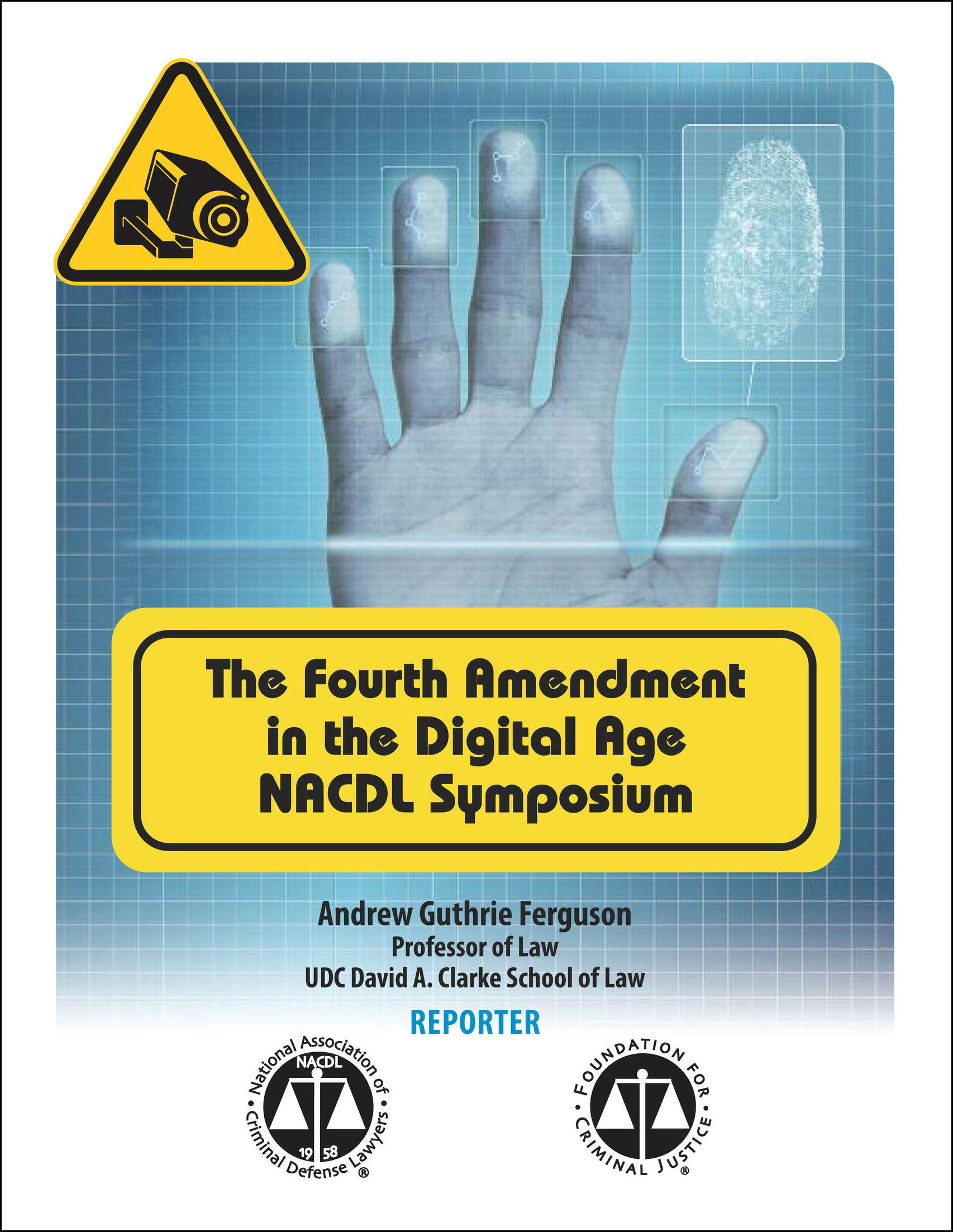Documents
 To address the new threats to privacy posed by the digital age, the National Association of Criminal Defense Lawyers, the Foundation for Criminal Justice, the American University Washington College of Law, and the Criminal Law Practitioner presented a symposium entitled “The Fourth Amendment in the Digital Age.” Criminal law practitioners, scholars, and technology experts discussed how digital searches, government surveillance programs, and new technologies are impacting Fourth Amendment protections in criminal cases as well as litigation strategies to challenge these developing threats to privacy. This report offers an overview of the symposium and the substantive areas of concern related to new technological and legal changes that impact privacy in the digital age. In addition, the report offers detailed recommendations concerning legal strategy, public education, legislative advocacy, and policy in this area.
To address the new threats to privacy posed by the digital age, the National Association of Criminal Defense Lawyers, the Foundation for Criminal Justice, the American University Washington College of Law, and the Criminal Law Practitioner presented a symposium entitled “The Fourth Amendment in the Digital Age.” Criminal law practitioners, scholars, and technology experts discussed how digital searches, government surveillance programs, and new technologies are impacting Fourth Amendment protections in criminal cases as well as litigation strategies to challenge these developing threats to privacy. This report offers an overview of the symposium and the substantive areas of concern related to new technological and legal changes that impact privacy in the digital age. In addition, the report offers detailed recommendations concerning legal strategy, public education, legislative advocacy, and policy in this area.
Video of the symposium panels
- New Developments in Surveillance Technology: How the Government Collects, Searches, Stores and Shares Information
- Challenges to the System: Prosecutors, Judges, and Defense Attorneys in the Digital Age
- A Conversation with Joseph P. Nacchio, Former Chairman and CEO, Qwest Communications International
- Law and Policy: A Path Forward for the Constitution, Courts, Congress, and Law Enforcement













